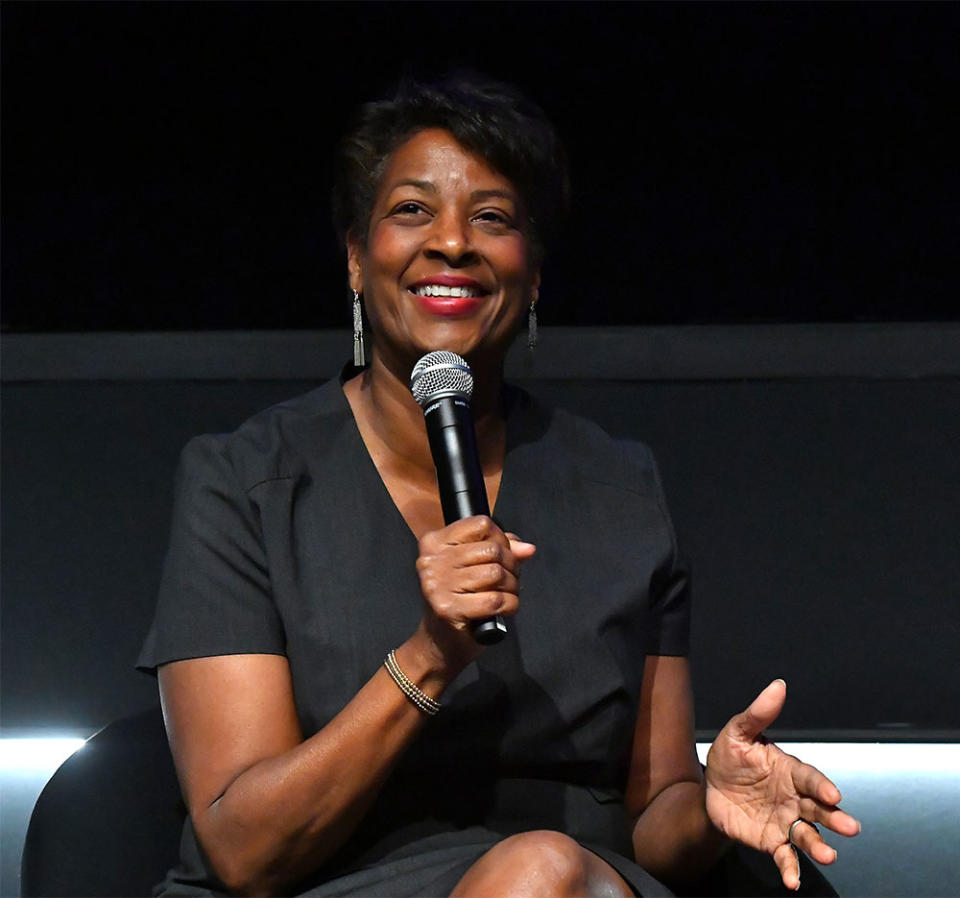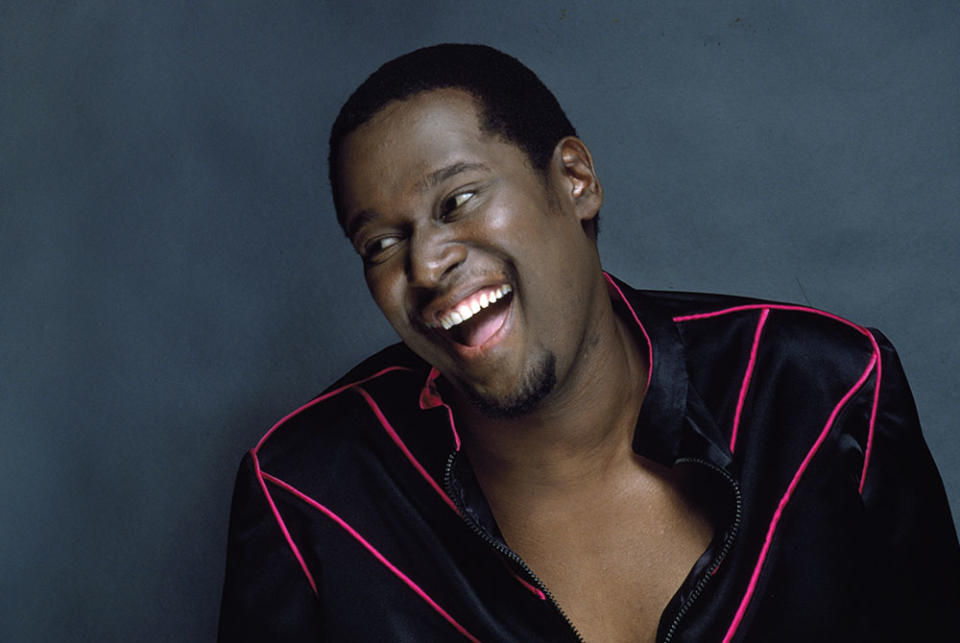‘Luther: Never Too Much’ Director on Tackling Vandross’ Legacy and Struggles in New Doc: “He’s the Soundtrack to America”

When award-winning filmmaker Dawn Porter — who directed the upcoming Luther Vandross documentary Luther: Never Too Much — thinks of her favorite song by the legendary singer, she selects “So Amazing,” the timeless track he wrote and produced for Dionne Warwick and later recorded himself.
But then she pauses. “I think it’s hard for me because I’m very attached to some scenes right now,” she says. Then she speaks about “Any Love,” Vandross’ autobiographical song about wanting to find the one and the sadness behind being alone. The track topped the R&B charts in the late ’80s.
More from The Hollywood Reporter
“I really wanted him to be able to tell you his story as much as possible, so how do you do that with someone who’s not with us? A lot of that was thinking about the lyrics. [On] ‘Any Love,’ he was just endlessly frustrated with the absence of a romantic partner in his life,” she tells The Hollywood Reporter. “So through his lyrics, I think you get to know a little bit more about him.”
Luther: Never Too Much will premiere at the Sundance Film Festival on Jan. 21 and arrives nearly 20 years after the eight-time Grammy winner died in 2005 at age 54, after suffering from a stroke in 2003. Porter, whose credits include The Ladybird Diaries, John Lewis: Good Trouble and The Way I See It, tackles his legacy and influence on the music world, as well as some of his personal struggles, from overeating to his sexuality.
She said she got the family’s blessing to produce the film and Vandross’ former label, Sony, is attached to the project — which meant the director had access to 80 hours of rehearsal footage and his rich music catalog. She also worked through 150 hours of archival footage and more than 2,000 photos.

“The family is sensitive about some things, and I had a lot of respect for that, but they also had a lot of respect for me as a filmmaker and knew that all the aspects of his story should be told, so everybody’s happy,” she says of the first-ever doc about the skilled singer. “I think they’ve gotten a lot of pitches, but we seemed to all hit it off.
“I’m not interested in doing a commercial. This is not a commercial for Luther. This is the truth as I discovered it,” Porter adds. “If we had discovered some hard things, you talk about the hard thing, and there are a few hard things. He didn’t have a perfect life by any means, so we addressed all of that. But I think for all of us, your struggles and how you respond to those struggles, that’s the story.”
One of those struggles was Vandross’ sexuality, which had been the subject of media speculation throughout his career. “What’s challenging, of course, is that he’s not here to speak for himself, and he chose to keep his private life private. On the other hand, I’m not homophobic; I wouldn’t want to be homophobic, so what we tried to do was have the people who loved him and knew him talk about his desire to be private and then say, ‘We’re going to respect how he wanted to live his life and what he wanted to say,’” she says.
“We worked really hard on that section because I think on the one hand, nobody should be outed. On the other hand, don’t you just wish Luther could live in 2024? The world has really changed. The world was different then. George Michael wasn’t out. AIDS was rampant. There was a lot of discrimination,” Porter adds. “So, I feel comfortable respecting his choice but saying that that was a struggle. The conversation around his sexuality was always a conversation that he struggled with, just like he struggled with his weight and his lack of love.”

Another topic that would be handled differently today would be Vandross’ size. As his starpower grew and career flourished, his weight fluctuated. At one point he lost a whopping 120 pounds. His fans and the public even referred to him as Big Luther or Little Luther during points in his career.
“It really struck me how much all the talk shows had no shame about focusing on his weight, I think in a way that we wouldn’t do today. I think people realize that’s inappropriate and body shaming,” Porter says. “It’s one thing to have to deal with, it’s another thing to have to deal with it in public. There’s a lot of shame that he had, so we really tried to show that.”
Some of Vandross’ former bandmates and collaborators chime in about his personal life and legacy in the film, including his musical partner Marcus Miller, Mariah Carey, Nile Rodgers, Clive Davis, Valerie Simpson, Richard Marx and Jamie Foxx, who also produced the doc. One person missing? Close friend Patti LaBelle, who some felt outed Vandross in 2017 when she told Andy Cohen on Watch What Happens Live! that he didn’t want to upset his mother or female fans by coming out.
When asked if Porter considered interviewing LaBelle for Never Too Much, she says: “I was able to speak with her, and I love her. In the end, we added the interviews that really were telling us something we didn’t know already.”

“But I love Ms. Patti and she’s the GOAT, and that was a tough time for folks,” Porter continues. “I feel like she was not tricked but led into that answer, and it’s unfortunate that it got so much attention that way. I know that she loved him very, very dearly, and he loved her, so they had a very special relationship.”
Vandross had grown up adoring LaBelle, so much so that he founded the first Patti LaBelle fan club in high school. He performed on the first season of Sesame Street and began singing backup for Roberta Flack, Chaka Khan, Bette Midler and David Bowie. “It wasn’t just Bowie influencing Luther — it was the other way around,” Porter explains. “Bowie was Ziggy Stardust before he came to America. He went to Philadelphia to seek out that Philadelphia Black music sound, then Luther happened to be there with his close friends, and then he and Bowie started collaborating.”
“He was also backup for Carly Simon. Whitney [Houston] sang backup for Luther. We couldn’t even put that in because [there] was too much,” Porter adds. “He was in too many places. There was too much to say.”
Vandross eventually put out his own music, going double platinum with his 1981 debut album, Never Too Much. He has sold 40 million albums worldwide and most of his albums achieved platinum or double platinum status. He scored five Top 10 hits on the Billboard Hot 100 chart, including “Here and Now,” “Endless Love” and “Power of Love/Love Power,” and he earned 27 Top 10 hits on the R&B chart, including seven No. 1s.

He also wrote and produced the majority of his music and penned and produced songs recorded by Bowie, Houston, Aretha Franklin, Diana Ross, The Temptations, Roberta Flack, Teddy Pendergrass, Gregory Hines, The Wiz and more.
“I think very often Black artists, it’s like we’re magical Negroes and not also skilled. That talent that is honed, that is practiced, that is rehearsed, that is nurtured — it is intelligent. He is a leader. He is a musical virtuoso, and that’s what I wanted to celebrate here. He doesn’t just open his mouth and sing,” Porter says.
“He’s the soundtrack to America, not just the soundtrack for Black people.”
Best of The Hollywood Reporter
Solve the daily Crossword

